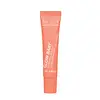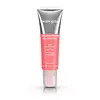What's inside
What's inside
 Key Ingredients
Key Ingredients

 Benefits
Benefits

 Concerns
Concerns

 Ingredients Side-by-side
Ingredients Side-by-side

Polyglyceryl-2 Isostearate
EmulsifyingDimer Dilinoleyl Dimer Dilinoleate
EmollientVp/Va Copolymer
Helianthus Annuus Seed Oil
EmollientDilinoleic Acid
EmollientBis-Benzyl Propanediol/Ipdi Copolymer
Skin ConditioningSimmondsia Chinensis Seed Oil
EmollientCaprylic/Capric Triglyceride
MaskingSilica
AbrasiveEuphorbia Cerifera Wax
Candelilla Cera
EmollientAroma
Sucrose Tetrastearate Triacetate
EmollientCaesalpinia Sappan Bark Extract
Skin ConditioningCitral
PerfumingSqualane
EmollientTocopheryl Acetate
AntioxidantSr-Hydrozoan Polypeptide-1
HumectantHydrolyzed Corn Protein
Skin ConditioningAcacia Senegal Gum
MaskingIpomoea Batatas Root Extract
Skin ConditioningHydrolyzed Wheat Protein
Skin ConditioningMaltodextrin
AbsorbentHydrolyzed Soy Protein
HumectantCitric Acid
BufferingLeuconostoc/Radish Root Ferment Filtrate
AntimicrobialLimonene
PerfumingAscorbic Acid
AntioxidantLinalool
PerfumingGeraniol
PerfumingBenzyl Benzoate
AntimicrobialBenzyl Salicylate
PerfumingPotassium Sorbate
PreservativeMica
Cosmetic ColorantTitanium Dioxide
Cosmetic ColorantCI 77891
Cosmetic ColorantPolyglyceryl-2 Isostearate, Dimer Dilinoleyl Dimer Dilinoleate, Vp/Va Copolymer, Helianthus Annuus Seed Oil, Dilinoleic Acid, Bis-Benzyl Propanediol/Ipdi Copolymer, Simmondsia Chinensis Seed Oil, Caprylic/Capric Triglyceride, Silica, Euphorbia Cerifera Wax, Candelilla Cera, Aroma, Sucrose Tetrastearate Triacetate, Caesalpinia Sappan Bark Extract, Citral, Squalane, Tocopheryl Acetate, Sr-Hydrozoan Polypeptide-1, Hydrolyzed Corn Protein, Acacia Senegal Gum, Ipomoea Batatas Root Extract, Hydrolyzed Wheat Protein, Maltodextrin, Hydrolyzed Soy Protein, Citric Acid, Leuconostoc/Radish Root Ferment Filtrate, Limonene, Ascorbic Acid, Linalool, Geraniol, Benzyl Benzoate, Benzyl Salicylate, Potassium Sorbate, Mica, Titanium Dioxide, CI 77891
Ethylhexyl Methoxycinnamate 7.5%
UV AbsorberBenzophenone-3 2%
UV AbsorberPolybutene
Bis-Diglyceryl Polyacyladipate-2
EmollientPPG-3 Benzyl Ether Myristate
EmollientGlycerin
HumectantC18-36 Acid Triglyceride
EmollientDiisocetyl Dodecanedioate
EmollientAroma
Carthamus Tinctorius Seed Oil
MaskingMenthol
MaskingCyclohexasiloxane
EmollientCyclopentasiloxane
EmollientPropylparaben
PreservativeLaminaria Saccharina Extract
Skin ProtectingSpirulina Maxima Extract
SmoothingBHT
AntioxidantSaccharin
MaskingAloe Barbadensis Leaf Extract
EmollientChamomilla Recutita Flower Extract
MaskingCucumis Sativus Fruit Extract
EmollientAscorbyl Palmitate
AntioxidantTocopherol
AntioxidantMica
Cosmetic ColorantTitanium Dioxide
Cosmetic ColorantCalcium Sodium Borosilicate
Ricinus Communis Seed Oil
MaskingIron Oxides
Silica
AbrasiveCI 15850
Cosmetic ColorantCI 75470
Cosmetic ColorantBlue 1 Lake
Cosmetic ColorantCI 45380
Cosmetic ColorantCI 19140
Cosmetic ColorantTin Oxide
AbrasiveAlumina
AbrasiveEthylhexyl Methoxycinnamate 7.5%, Benzophenone-3 2%, Polybutene, Bis-Diglyceryl Polyacyladipate-2, PPG-3 Benzyl Ether Myristate, Glycerin, C18-36 Acid Triglyceride, Diisocetyl Dodecanedioate, Aroma, Carthamus Tinctorius Seed Oil, Menthol, Cyclohexasiloxane, Cyclopentasiloxane, Propylparaben, Laminaria Saccharina Extract, Spirulina Maxima Extract, BHT, Saccharin, Aloe Barbadensis Leaf Extract, Chamomilla Recutita Flower Extract, Cucumis Sativus Fruit Extract, Ascorbyl Palmitate, Tocopherol, Mica, Titanium Dioxide, Calcium Sodium Borosilicate, Ricinus Communis Seed Oil, Iron Oxides, Silica, CI 15850, CI 75470, Blue 1 Lake, CI 45380, CI 19140, Tin Oxide, Alumina
 Reviews
Reviews

Ingredients Explained
These ingredients are found in both products.
Ingredients higher up in an ingredient list are typically present in a larger amount.
Aroma refers to an ingredient, or mixture of ingredients, that impart or mask a flavor.
The name is slightly confusing. This is because INCI associates aroma with flavor instead of smell.
Here is the official definition from the The International Cosmetic Ingredient Dictionary and Handbook:
“Aroma is a term for ingredient labeling used to identify that a product contains a material or combination of materials normally added to a cosmetic to produce or to mask a particular flavor.”
INCI shows the only purpose of aroma to be "flavouring".
However, due to regulation differences, some companies may use aroma in place of parfum.
In Canada, this ingredient only has to be listed in concentrations above 1%.
Learn more about AromaMica is a naturally occurring mineral used to add shimmer and color in cosmetics. It can also help improve the texture of a product or give it an opaque, white/silver color.
Serecite is the name for very fine but ragged grains of mica.
This ingredient is often coated with metal oxides like titanium dioxide. Trace amounts of heavy metals may be found in mica, but these metals are not harmful in our personal products.
Mica has been used since prehistoric times throughout the world. Ancient Egyptian, Indian, Greek, Roman, Aztec, and Chinese civilizations have used mica.
Learn more about MicaSilica, also known as silicon dioxide, is a naturally occurring mineral. It is used as a fine, spherical, and porous powder in cosmetics.
Though it has exfoliant properties, the function of silica varies depending on the product.
The unique structure of silica enhances the spreadability and adds smoothness, making it a great texture enhancer.
It is also used as an active carrier, emulsifier, and mattifier due to its ability to absorb excess oil.
In some products, tiny microneedles called spicules are made from silica or hydrolyzed sponge. When you rub them in, they lightly polish away dead skin layers and enhance the penetration of active ingredients.
Learn more about SilicaTitanium dioxide is a mineral UV filter widely used in sunscreens and cosmetics.
It is one of only two UV filters officially classified as “mineral” by regulatory agencies, the other being zinc oxide.
Titanium dioxide provides broad-spectrum protection mostly in the UVB and UVAII range, with some protection in the UVAI range.
While its UVA protection isn’t as strong as zinc oxide’s, the difference is minor.
A common myth is that mineral UV filters reflect UV light. However, modern research shows titanium dioxide absorbs UV radiation like chemical filters (~95% absorption & 5% reflection).
Thanks to its non-irritating nature, titanium dioxide is suitable for sensitive, acne-prone, or redness-prone skin. It is unlikely to cause "eye sting" like other sunscreen ingredients.
A major drawback of this ingredient is its white cast and thick texture. This is why mineral sunscreens often leave a white cast and are less cosmetically elegant than chemical/hybrid sunscreens.
To improve white cast and spreadability, micronized or nano-sized titanium dioxide is often used.
There are ongoing concerns surrounding nano-titanium oxide's impact on marine ecosystems.
There is no conclusive evidence that any form of titanium oxide (or any other sunscreen ingredients) will cause harm to marine ecosystems or coral reefs. The science is still developing but many consumers are keeping a close eye on this issue.
Please note, many destinations have reef-safety sunscreen rules. For instance, the U.S. Virgin Islands advises all visitors to use non-nano mineral sunscreens.
Nano mineral sunscreens once raised safety concerns about absorption into skin.
Extensive research has shown that they do not penetrate healthy or damaged skin; they remain safely on the surface and the top layer of dead skin (stratum corneum).
You'll likely find titanium dioxide bundled with alumina, silica, or dimethicone. These ingredients help make titanium dioxide highly photostable; this prevents it from interacting with other formula components under UV light.
Learn more about Titanium Dioxide